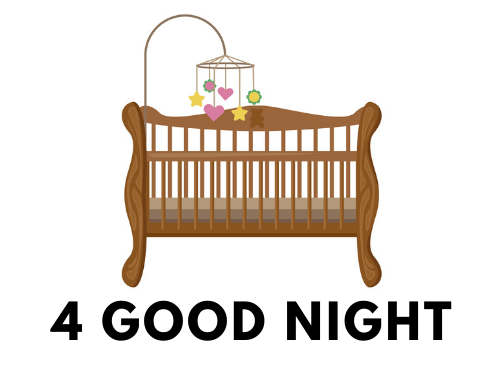Diaper issues can have a significant impact on your baby’s ability to get quality sleep. A wet or dirty diaper can cause discomfort for the baby, leading to restlessness and difficulty settling into a deep sleep.
If your baby wakes up frequently due to a full diaper, it can lead to exhaustion from a lack of restful sleep.
Additionally, diaper rash caused by prolonged contact with urine and feces can cause significant irritation and distress in babies, preventing them from sleeping well.
It is essential to make sure that you are regularly checking your baby’s diaper during their naps and nighttime sleep.
Change diapers as soon as they become wet or soiled to reduce potential problems.
You may want to consider using overnight diapers if your baby is prone to sleeping through a diaper change. In addition, be sure to use gentle, hypoallergenic diaper cream to reduce the risk of diaper rash.
By proactively managing your baby’s diaper issues, you can help ensure that they get quality sleep and avoid discomfort due to wet or dirty diapers.
This will help them get the restful sleep they need for healthy growth and development.
What To Do With Diaper Issues?
If you are experiencing diaper issues with your baby, there are a few steps you can take to improve their sleep quality.
First, make sure to check the fit of the diaper every time you change it. A too-tight or too-loose diaper can cause problems and increase leakages.
Second, be sure to use an absorbent overnight diaper if necessary, as this will help keep any leaks confined for long periods.
Finally, use a gentle yet effective hypoallergenic diaper cream to reduce irritation and prevent painful rashes from developing.
This will also help create a barrier that prevents wetness from reaching your baby’s skin.
By taking these steps, you can help minimize diaper issues and improve your baby’s ability to get quality sleep.
The Bottom Line
Diaper issues can have a significant impact on your baby’s sleep. It is important to ensure you regularly change diapers and use overnight diapers if necessary.
Additionally, use gentle hypoallergenic diaper cream to reduce irritation and provide a protective barrier against wetness.
Taking these steps will help ensure that your baby gets the restful sleep they need for healthy growth and development.
The bottom line is that diaper issues can profoundly affect your baby’s ability to get quality sleep, so it is important to take proactive steps to manage them.
Ensure you regularly change diapers, use overnight diapers if necessary, and use a gentle yet effective diaper cream to reduce irritation.
Doing so will help your baby get the restful sleep they need for healthy growth and development.
Is It Better To Let a Baby Sleep or Change Their Diaper?
This is a common question among parents and caretakers of young children. Understanding the impact of diaper issues on baby sleep can help you make an informed decision.
Diapers are designed to absorb urine and feces, reducing exposure to bacteria that can cause skin irritation, rashes, or infection.
However, if they become full, this absorption capacity decreases significantly.
An overfilled diaper can lead to skin sensitivity and discomfort, which may wake your baby up in the middle of their sleep or prevent them from falling asleep in the first place.
Additionally, wet diapers can also increase the risk of diaper rash since moisture increases friction between your baby’s skin and the diaper itself.
This will result in redness and soreness in your baby’s diaper area.
Keeping up with changes in your baby’s diapers is essential for a healthy sleep routine, but that doesn’t mean you need to change the diaper at every wake-up.
If the diaper is not overly full, and your baby does not appear uncomfortable or in pain, it may be better to let them continue sleeping rather than wake up and change their diapers.
However, if the diaper appears overly full and has been on for more than two hours, then it is best to change it before attempting to fall asleep again.
Your little one’s comfort should always be a top priority when deciding whether or not to change their diaper before bedtime or during nighttime awakenings. When in doubt
How Many Times Should You Change Your Baby’s Diaper at Night?
The frequency of diaper changes at night depends on several factors, including your baby’s age, how much they drink or eat before bedtime, and the absorbency level of their diaper.
Generally speaking, if your child is younger than 6 months old, changing their diapers at least every three hours during the night is recommended.
As they get older and can hold more urine in their bladder, you may not need to change them as often.
It’s also important to consider the type of diaper you’re using. Disposable diapers are typically more absorbent than cloth ones, so you don’t necessarily need to change them as frequently.
However, cloth diapers should be changed relatively quickly after wetting to avoid skin irritation
Conclusion
Diaper issues can have a significant impact on your baby’s sleep, so it is important to take proactive steps to manage them.
Regularly changing diapers, using overnight diapers if necessary, and applying hypoallergenic diaper cream will help improve your little one’s ability to get quality sleep.
Several things affect how often you need to change your baby’s diaper at night, such as their age, what kind of diaper they’re wearing, and how much liquid they’ve consumed before going to bed.
Use this information to help you decide how often you should be changing your baby’s diaper during the night.
By taking these steps, you can ensure that your baby receives the restful sleep they need for healthy growth and development.
Good luck!














